Dragon Age 2 remains the boldest of BioWare's RPGs
Haters should give this diamond in the rough another chance.
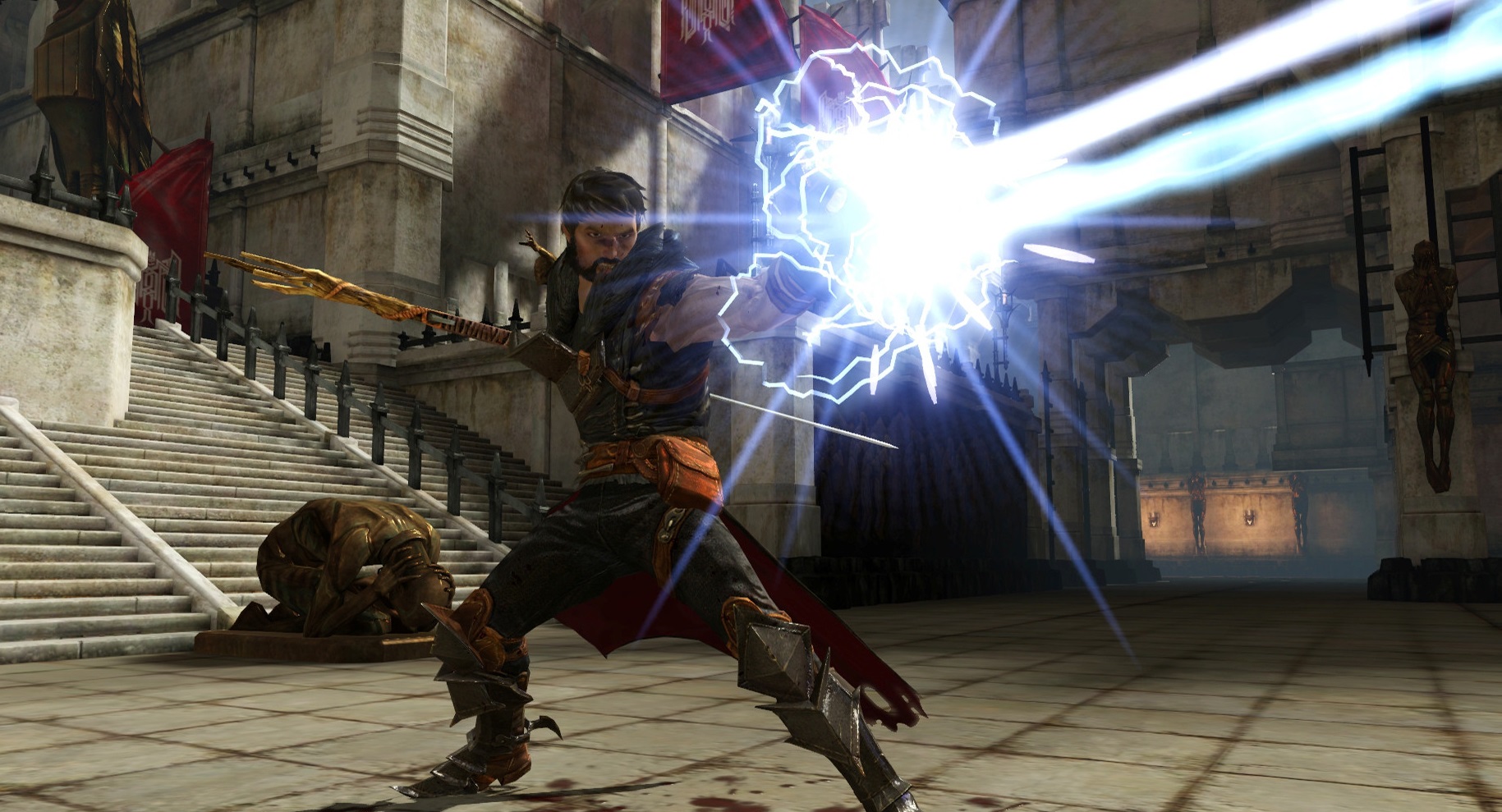
I love Dragon Age 2. I'm an old school CRPG boy and naturally dug how Origins harkened back to those classic isometric days, but the story was typical fantasy fare, with a narrative structure that we've seen in nearly every RPG over the last few decades. The sequel was bolder and weirder and, yes, very rough around the edges. It remains a tragedy that BioWare didn't continue down this path, because there's a spark there that simply hasn't been present in any of its games since.
The other Dragon Ages are all centred around specific crises that engulf almost everything. Origins is all about ending the latest Blight and fulfilling the destiny of the Grey Wardens, while Inquisition is all about building up your militant organisation and closing the Breach. Dragon Age 2 is a biography. There are crises, sure, and darkspawn, and the conflict between the Chantry and mages, but really it's all about Hawke.
Hawke is BioWare's most defined player character. There are still plenty of directions for you to take them in, but once you're on your chosen path, it feels like you're playing a tangible, flawed person rather than just a reflection of a bunch of arbitrary choices. They're closer to Geralt than the Grey Warden, the Inquisitor or even Commander Shepard. This is emphasised by the fact that everything you do is actually being relayed after the fact by Varric, Dragon Age's weirdly sexy literary giant (and dwarf).
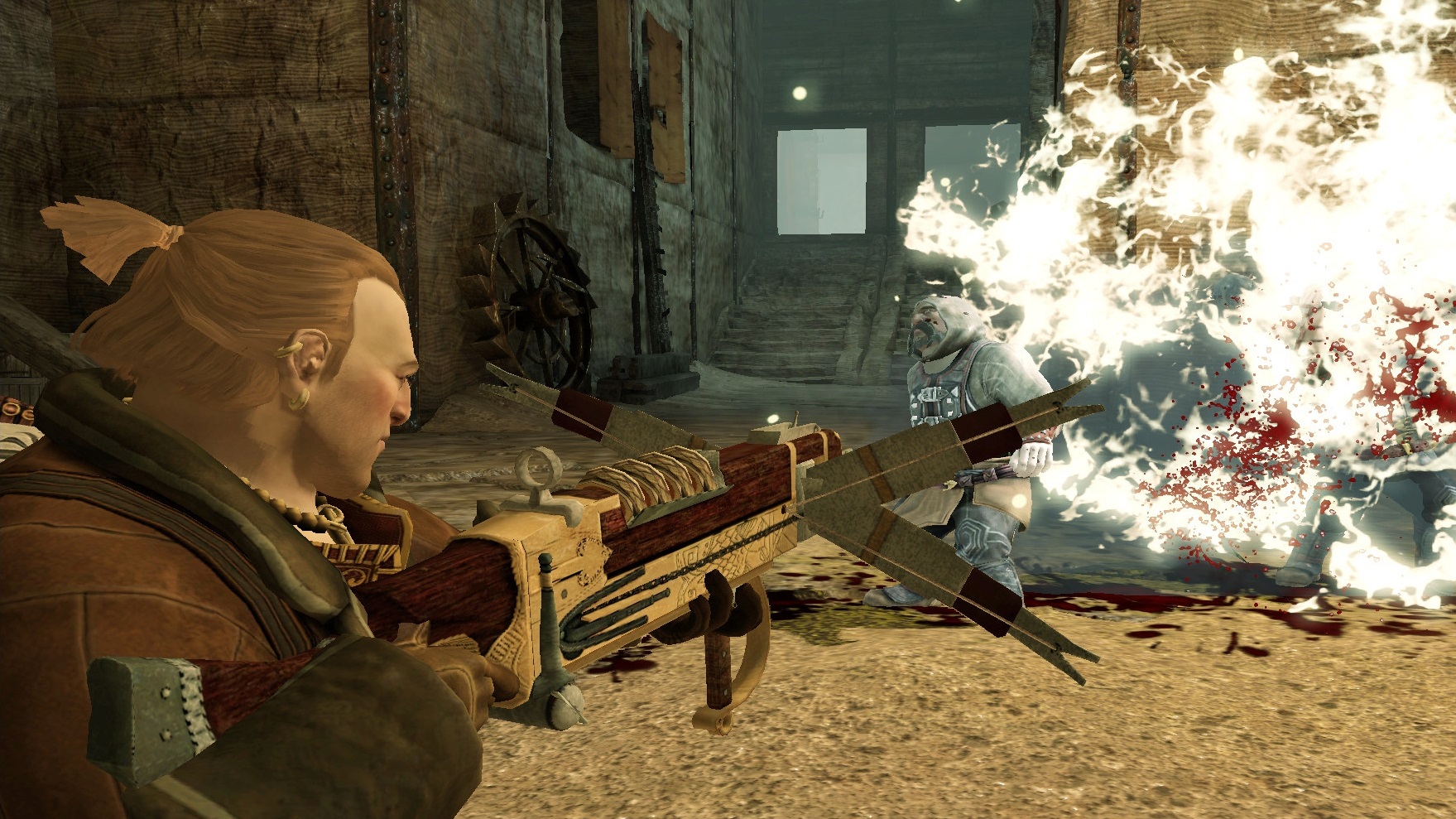
Varric is an excellent narrator, even if he's not to be trusted. He's a bit unreliable, especially when it comes to his own exploits, which makes Dragon Age 2 feel even more like an authentic biography. And through Varric we see years of Hawke's life, their changing status, the fortunes and misfortunes of their friends, and how they grow from a nobody into a pivotal player in the fate of Kirkwall. The character progression, both in terms of Hawke and their companions, is second to none in BioWare's oeuvre.
Time is central to Dragon Age 2, and its passage brings with it significant changes. Some of your mates will get jobs, find new loves, and the city around you will heave and transform as it deals with all sorts of problems, from mage uprisings to those intimidating qunari. As Hawke, you become embroiled in all of this, but the world doesn't orbit you. That, perhaps, is what I love most about Dragon Age 2. You're important, certainly, but you're often powerless. And from that lack of control, the world and the characters in it get a great deal more agency.
Anders is often considered a low point. He was introduced in Awakening, the Origins expansion, and quickly became one of my faves. In Dragon Age 2, he's an angry mess who causes a lot of problems. He's not nearly as likeable, and regardless of what you do, he's going to fuck everything up. I resented him a lot, but that's great! BioWare relies too much on charming pals with lots of banter, but in Dragon Age 2 it stokes the fires of rivalry and acknowledges that friendships can be very complicated and very strained.
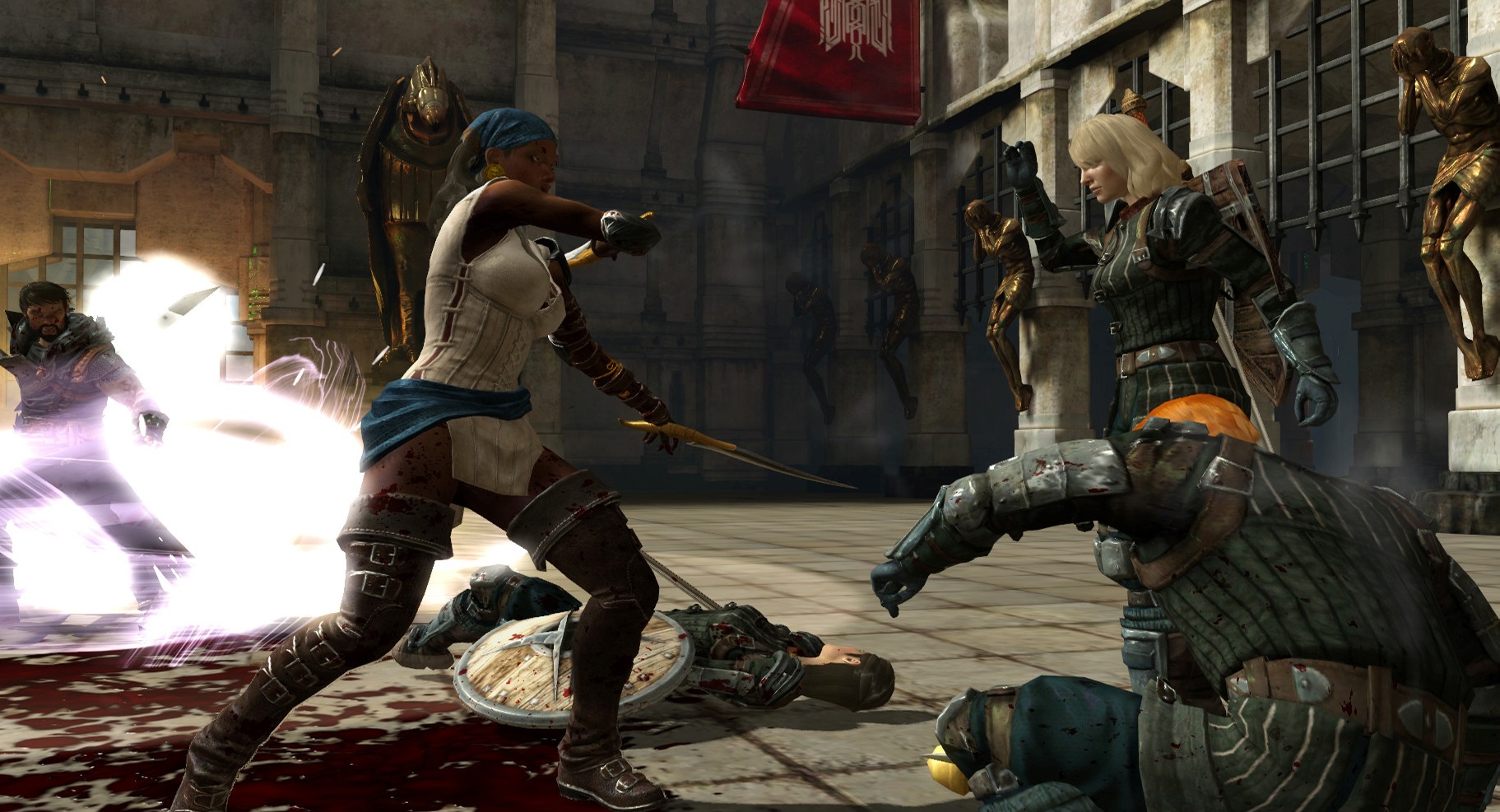
Like Anders, Aveline also feels like a character who's charting her own course. She's the first companion you get, but she has her own life. In Kirkwall, she joins the guards, and if you're of a criminal persuasion you'll butt heads a lot. I still vividly recall her exasperation whenever I did something a bit naughty, and if anything was going to get me to change my ways it was going to be her disappointed gaze. And it worked, to a degree. I definitely ended up as a loveable rogue instead of a serial killer just because I wanted her to like me. While you can get a wee kiss, she's not romanceable, and instead you'll be able to help her seduce a fellow guard that she's sweet on. So she has a career and a romance entirely separate from the party, which sometimes causes complications. And there's a bit of that in everyone. Your companions aren't just waiting around for you to call on them, and they're not subservient. In Inquisition, on the other hand, even the toughest, most opinionated characters, like Cassandra, feel like your employees.
The biggest gaming news, reviews and hardware deals
Keep up to date with the most important stories and the best deals, as picked by the PC Gamer team.
Dragon Age 2 also boasts a much stronger sense of place than the other games. Despite its broad time frame, it's actually a bit more focussed, mostly interested in what happens to Kirkwall. I wish more RPGs were set in cities, and Kirkwall ends up feeling a lot more like home than Skyhold or your depressing camp in Origins. That said, it's not an attractive city, and while a lot of changes happen to it over the years, it physically remains largely the same. I was, I confess, a bit sick of it by the end, but I would have been more than happy to spend additional time there if there was a bit more diversity.
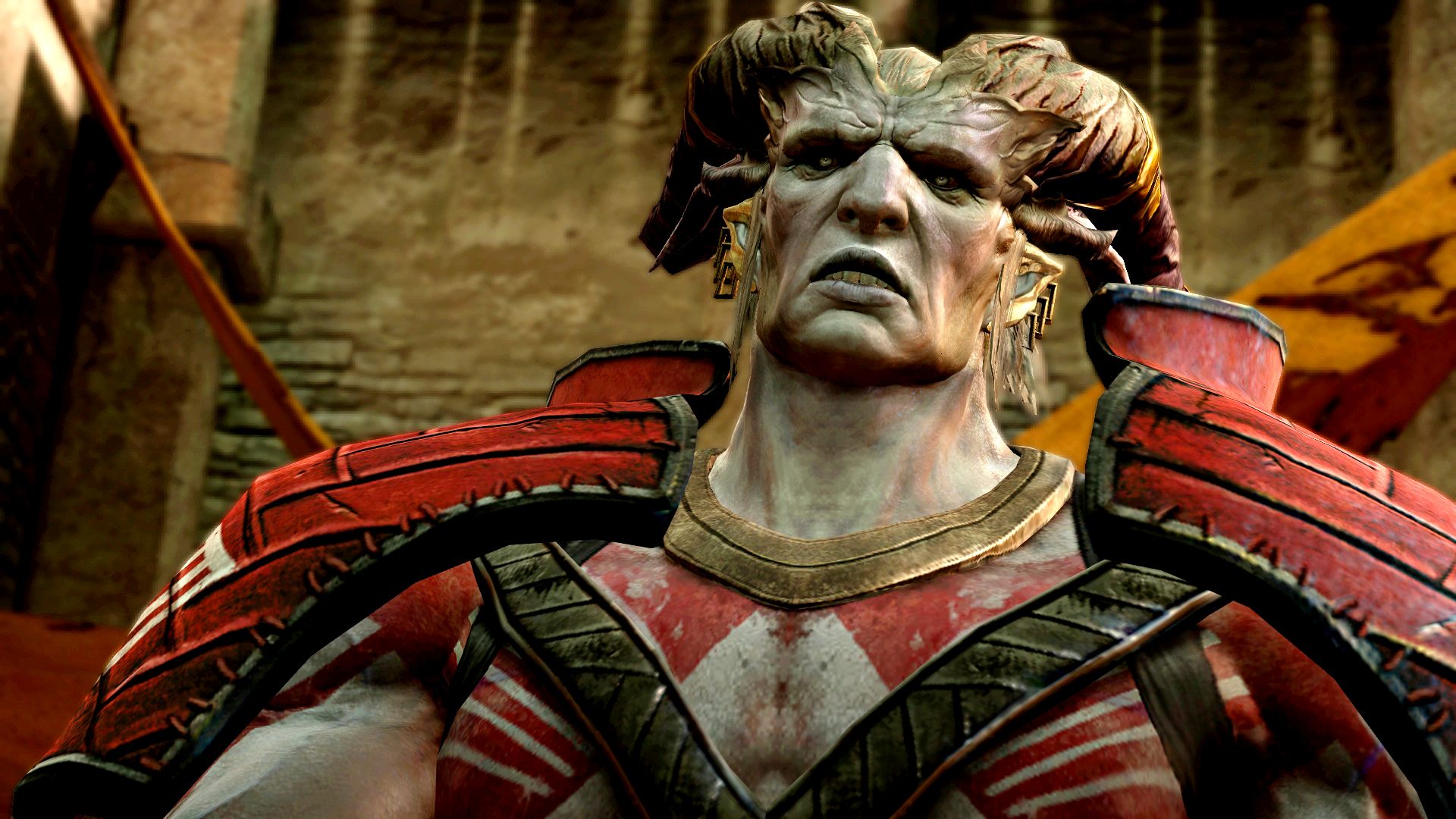
That's really where Dragon Age 2 trips up. There just aren't enough distinct locations for a game of this size. Dungeons, for instance, are frequently recycled, so you'll be fighting your way through the same caves a lot, with differences amounting to what end you start at—it just isn't enough, and speaks to the game's rocky development. The flashy but not especially tactical combat only exacerbated the issue, making the adventuring portion of the game a bit of a disappointment.
All the crappy dungeons and simple fights aren't what I remember when I think of Dragon Age 2, though, and time has only improved it in my estimation. We gave it a whopping 94 in our Dragon Age 2 review, which proved to be pretty contentious, but I've definitely come over to Rich's side here. For all its flaws, it's a singular BioWare RPG, and the stuff it nails is far more important to me than flinging spells and hitting things with swords. It would have been much better served getting rid of half of the encounters and using the additional resources to polish up the rest. If Hawke's violent adventures weren't so integral to the story, I'd even be fine with getting rid of the lot of them, to be honest. It's probably Disco Elysium's influence, but I'm much more open to the idea of RPGs without any action these days.
While the rest of the series is an evolution of the Baldur's Gate style of CRPG, Dragon Age 2 has just as much in common with Planescape Torment, and frankly I don't think there's a better path to designing a fascinating RPG than following Planescape's example. Epic, sweeping quests still hold some appeal, but that's rarely what folk want to talk about when they finish an RPG. It's the people we meet on these quests that end up getting lodged in our minds, and the character we've fashioned by the end of it. Games like Planescape and Disco Elysium recognise this the most, and while Dragon Age 2 doesn't go all in, it's absolutely in the same ballpark.
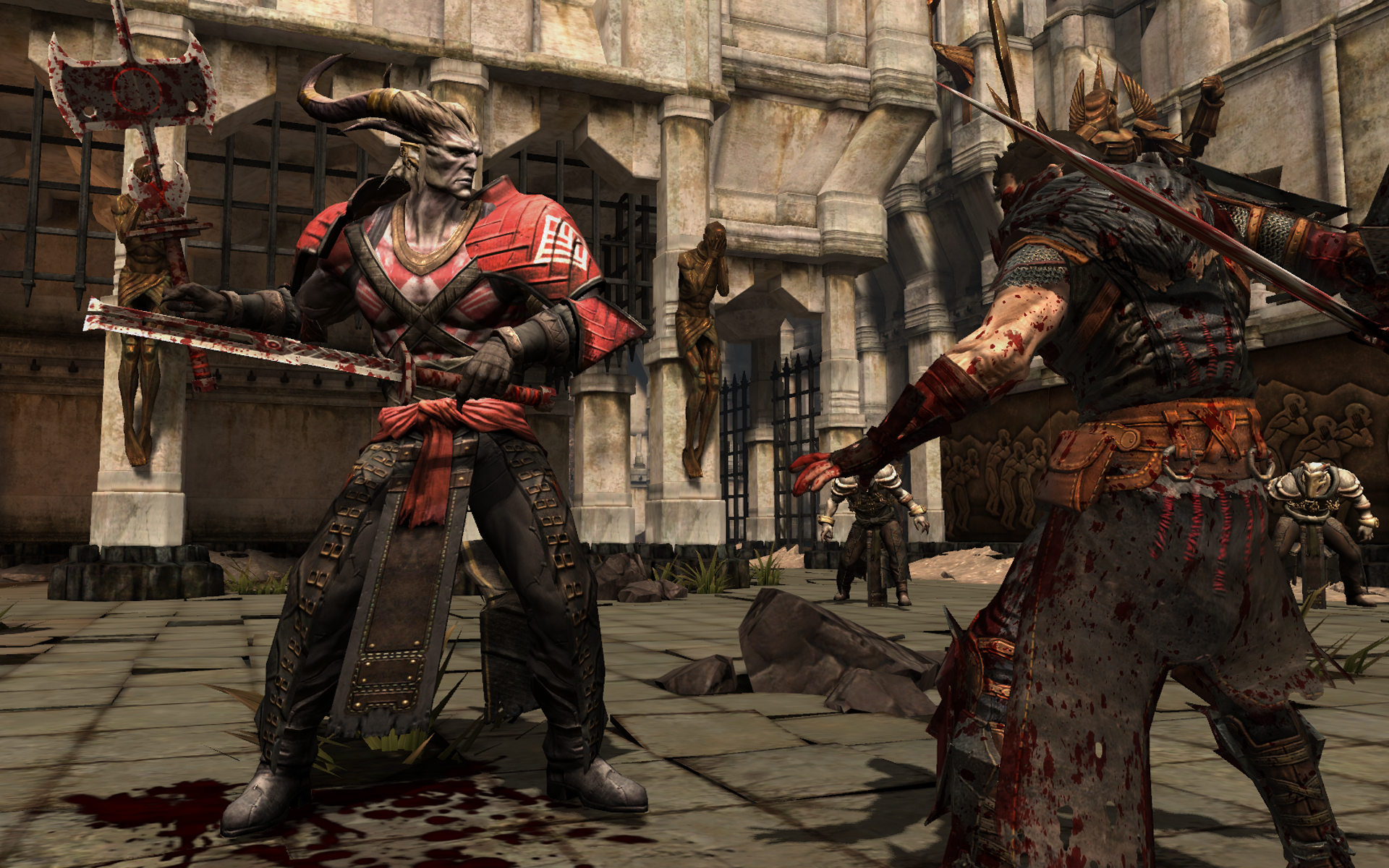
It's a huge shame, then, that it's become the disappointing middle child. Inquisition boasts lots of memorable characters, greatly improved combat, and a world teeming with diverse locations, but it's also completely beholden to trendy open world game design. It's ambitious in scale, but utterly conservative when it comes to just about everything else. You're back to being the most important person in the world, you can sleep with almost everyone you recruit, and you suck up everyone else's agency. It's pure power fantasy, right up until that critical betrayal that you'll never even see if you don't play the last DLC. I've played this mammoth game twice, so obviously I'm a fan, but it contains no surprises. It's just too safe.
I don't think we're going to see Dragon Age 2's like again, at least from BioWare. After the critical and commercial failure of Anthem, and the less than warm welcome received by Mass Effect Andromeda, BioWare is likely bricking it at the prospect of another dud. I don't see EA letting it take any bold chances, either. Since Inquisition was BioWare's last win, Dragon Age 4 is probably going to take it from there. I guess I'm just going to have to be content with treasuring the studio's last interesting experiment. I was thinking of starting a club, but I don't think there are enough of us. If I'm wrong, let yourself be known, and we can lament the dominance of massive open world RPGs together.

Fraser is the UK online editor and has actually met The Internet in person. With over a decade of experience, he's been around the block a few times, serving as a freelancer, news editor and prolific reviewer. Strategy games have been a 30-year-long obsession, from tiny RTSs to sprawling political sims, and he never turns down the chance to rave about Total War or Crusader Kings. He's also been known to set up shop in the latest MMO and likes to wind down with an endlessly deep, systemic RPG. These days, when he's not editing, he can usually be found writing features that are 1,000 words too long or talking about his dog.

